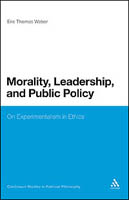Deadline for submissions: April 1st, 2012
Tentative publication date: Winter 2012
About the Journal
Raisons Politiques is a well-established journal of political thought currently building an international reputation with the support of Sciences Po, the French renowned research institute for social sciences. The journal endeavors to provide a forum where scholars from various backgrounds and traditions can fruitfully engage with contemporary social and political issues. By contrast with publications intended to a particular discipline, Raisons Politiques adopts a thematic approach and welcome contributions from all branches of social sciences. It encourages submissions in English or French, from both established academics and aspiring members of the scientific community.
Among notable contributors are Pierre Bourdieu, Judith Butler, Gerald Allan Cohen, Mitchell Cohen, Ronald Dworkin, Norman Daniels, Clifford Geertz, Robert E. Goodin, Jürgen Habermas, Martha Nussbaum, Thomas Nagel, Philip Pettit, Ian Shapiro, Quentin Skinner, Judith Jarvis Thomson, Michael Walzer and Iris Marion Young.
Raisons Politiques is available online through CAIRN, the French portal for social sciences. For more information about the journal, please visit the editor’s website.
Special Issue in English on “Global Justice & Practice-Dependence”
Over the last few years, a new generation of political theorists working in the field of global justice has come to endorse a practice-dependent view about justice. In this view, the content of a given conception of justice depends on the nature of the practices it is intended to regulate, where “practices” refer to existing institutions and every system of formal or informal rules defining the rights and duties of agents involved. Global social and political practices would thus not be governed by the same conception of justice that applies to domestic practices, dramatically different in nature, and that would help to account for the normative discontinuity between the domain of nation-states, where strong egalitarian standards of justice prevail, and the world beyond national borders, where requirements of justice seem closer to a humanitarian moral minimum.
This special issue of Raison Politiques aims to assess the legitimacy of the practice-dependent approach as well as to explore the conclusions that might be drawn from it in the debate on global justice. Authors are thus invited to submit:
- Articles arguing in favor of the practice-dependent approach from a Rawlsian perspective or within a wider constructivist framework;
- Articles offering a non-constructivist foundation for the practice-dependent approach;
- Articles discussing different types of practice-dependence, such as conventionalism, institutionalism and functionalism;
- Articles exploring whether the practice-dependent approach is supported by a particular view about the nature of justice;
- Articles rejecting the methodological commitment to practice-dependence and offering reasons to favor an alternative approach to global justice;
- Articles endorsing the practice-dependent view to develop a substantial account of global justice.
Submission Process
Manuscripts must be 1.5-spaced and no longer than 7,000 words, including footnotes and a 150-word summary. All bibliographical references must come in footnotes, formatted as follow:
- David Miller, National Responsibility and Global Justice (Oxford: Oxford University Press, 2007).
- Thomas Hylland Eriksen, “Formal and Informal Nationalism”, Ethnic and Racial Studies (16/1), 1993, 1-25.
- Kok-Chor Tan, “The Problem of Decent Peoples”, in David Reidy and Martin Rex (eds.), Rawls’s Law of People. A Realistic Utopia (Oxford: Blackwell, 2006), 76-94.
To facilitate blind review, please remove author-identifying information from the text and provide in a separate file a short biographical note (up to 80 words) specifying your title, current affiliation, research interests and relevant publications within the last three years. Send your manuscript and the file containing your personal information in Microsoft Word or Rich Text Format to hugo.elkholi@sciences-po.org.
All manuscripts are anonymously peer-reviewed by two referees within a two months delay – typically, one member of the editorial board and one external expert. Note that works under simultaneous consideration for publication elsewhere and works that have already been published in any form will not be considered.














































































































Recent Comments